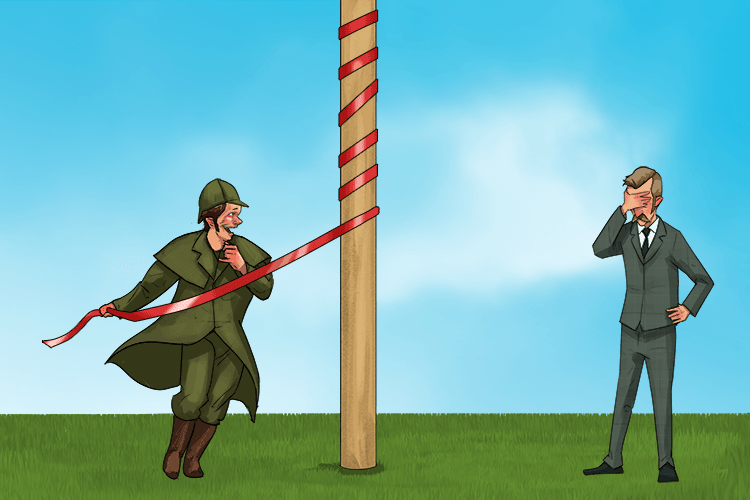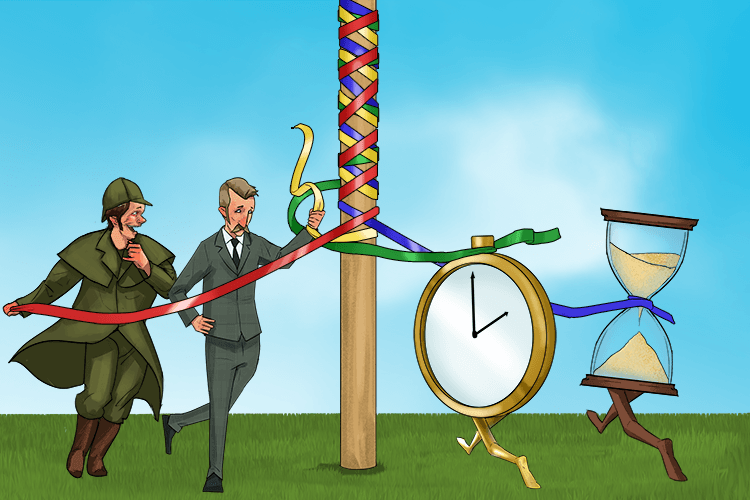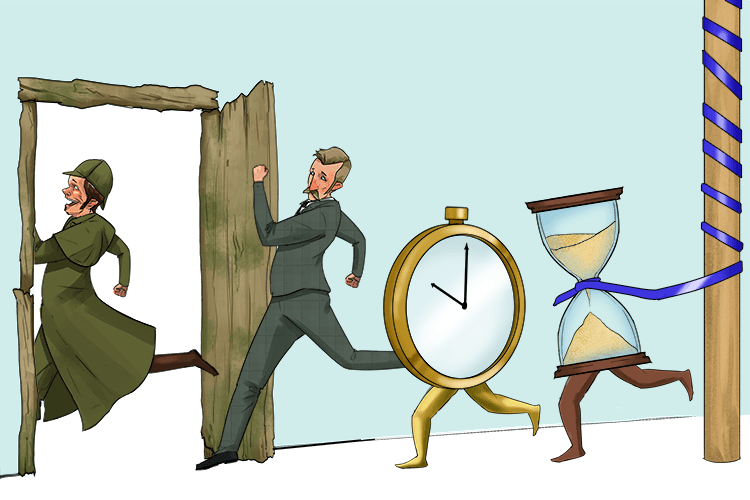Come what come may, time and the hour runs through the roughest day
To remember this quote use the following mnemonic.
Note: Dr Watson is Sherlock Holmes' dearest friend and is used to represent and help you remember the word "what".
Come Dr Watson (what), come play on the maypole.

But then Mr Time and Mr Hour glass joined in too.

To finish off they decided to run through the roughest ever door made in a day.

"Come what come may, time and the hour runs through the roughest day." This is spoken by Macbeth after hearing the witches' prophecy, act 1, scene 3, line 46.
Meaning
- "Come what, come may" - Whatever happens, happens. Macbeth is accepting fate.
- "Time and hour runs through the roughest day" - Time keeps moving forward, no matter how difficult the situation.
- Overall interpretation - Macbeth is reassuring himself that fate will unfold as it should. He believes that if he is destined to be king, it will happen in due course, without him needing to interfere.
Exam Advice
- Context - Macbeth has just heard the witches predict he will be king and he is beginning to think about fate and destiny.
- Theme of fate vs free will - this line suggests Macbeth initially believes in destiny, but later in the play, he takes matters into his own hands by murdering Duncan.
- Irony - Macbeth starts by trusting time and fate, but he soon becomes impatient and tries to speed up his rise to power.
- Foreshadowing (be a warning of a future event) - His belief that time will solve everything will later be replaced by paranoia and ruthless ambition.
- Contrast with later Macbeth - Compare this to his later lines, such as "The very firstlings of my heart shall be the firstlings of my hand." Where he stops waiting and acts impulsively.




